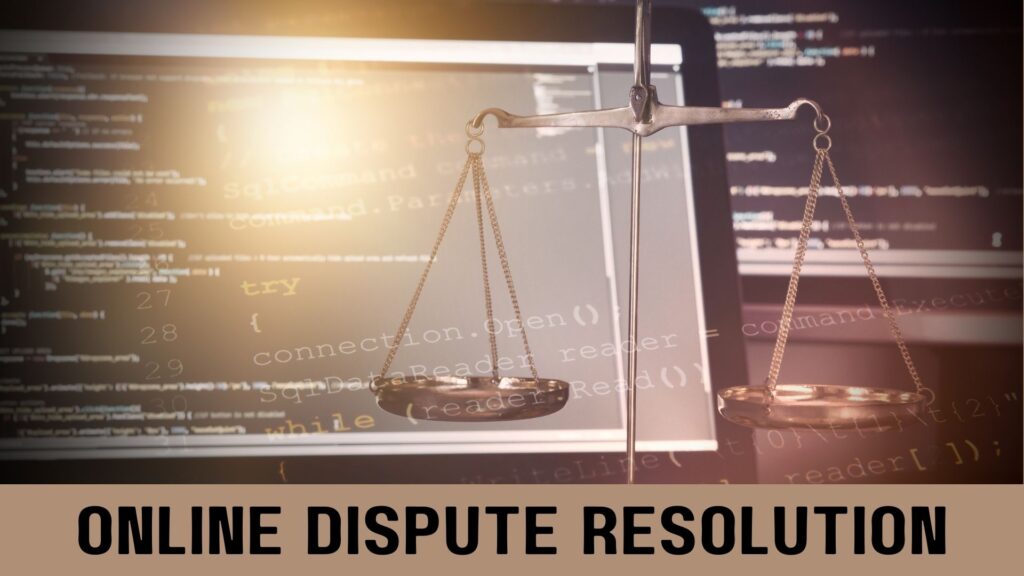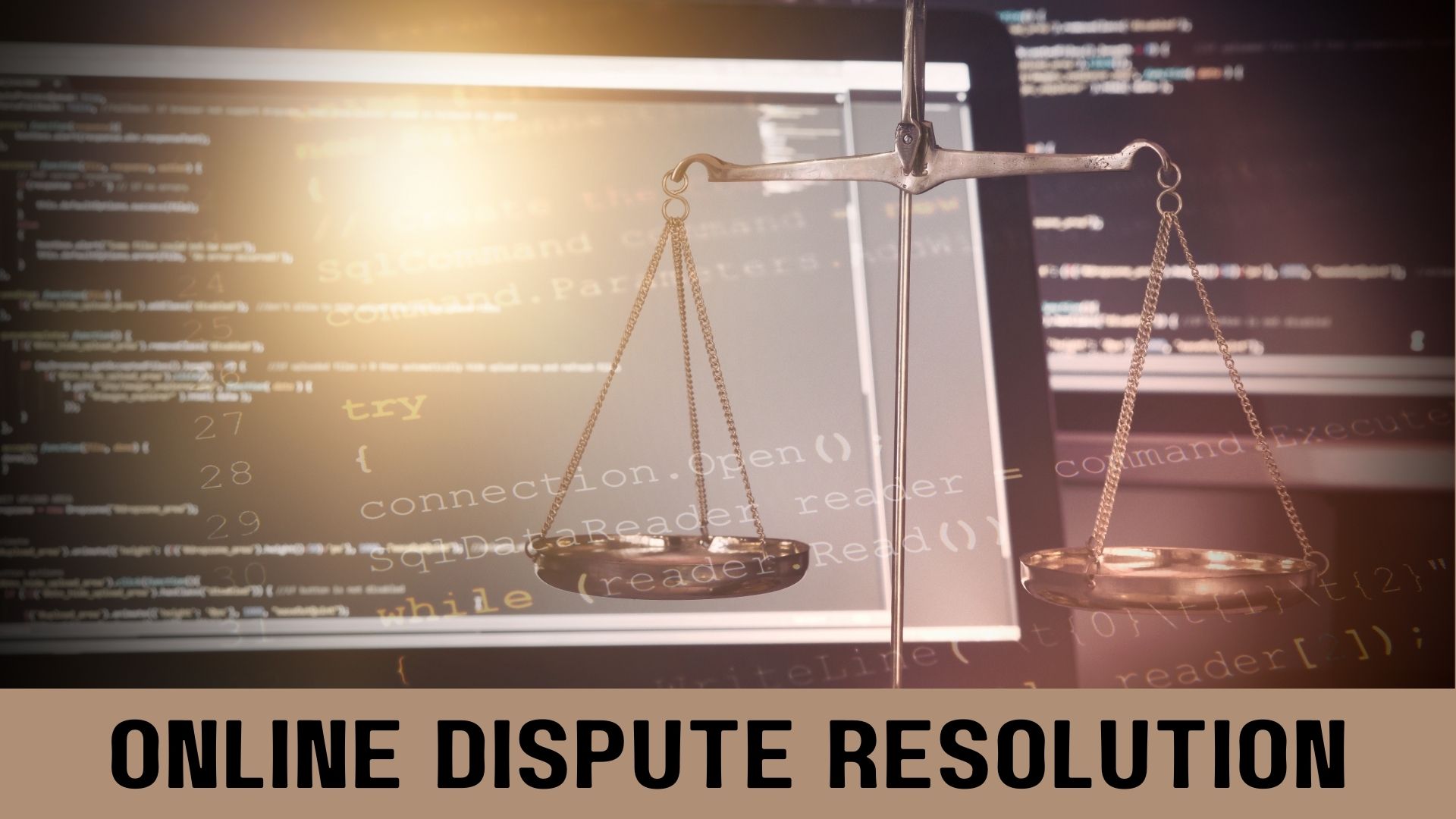The legal sector is embracing technology as India goes digital, with Online Dispute Resolution (ODR) playing a key role. ODR offers faster, cheaper, and more flexible solutions than traditional courts, making it ideal for today’s busy world.
By breaking barriers, ODR provides access to justice for those unable to approach conventional courts. It complements Alternative Dispute Resolution (ADR) methods like online mediation, reshaping the Indian legal system. ODR is making conflict resolution quicker, fairer, and more accessible, creating a new era of tech-driven justice.
What is Online Dispute Resolution (ODR)?

Online Dispute Resolution (ODR) simplifies conflict resolution online, using video calls and secure sharing as e-commerce grows. As e-commerce and online services grow, there is a greater need to address business, consumer, and contract disputes.
In a world drowning in legal red tape, ADR and ODR emerge as the dynamic duo of dispute resolution. These methods are like the fast-food drive-thru of justice – quick, efficient, and satisfying. Instead of courtroom drama, imagine friendly negotiations over virtual coffee.
The Need for ODR in India

India’s courts are drowning in a tsunami of 50 million cases. Justice gasps for air, suffocating under mountains of paperwork and glacial proceedings. Meanwhile, the digital revolution spawns disputes faster than a rabbit on caffeine. It’s a perfect storm of legal chaos, where the scales of justice are tipping dangerously close to “system overload.”
In our digital frontier, disputes zip across borders faster than courts can blink. Enter ODR: the sleek, cost-effective peacemaker. It’s justice reimagined for our lightning-fast business world, solving conflicts at the speed of now.
COVID-19 turned courtrooms into ghost towns, but justice found a new home online. ODR swooped in like a digital superhero, transforming “See you in court!” to “See you on Zoom!” Suddenly, resolving disputes became as easy as ordering takeout – faster, cheaper, and you don’t even have to change out of your pajamas. Welcome to Justice 2.0, where verdicts are swift and Wi-Fi is the new gavel.
The Legal Framework for ODR in India

ODR in India is like a tech-savvy kid raised by old-school parents – the Arbitration and Conciliation Act of 1996. This legal chameleon adapts to the digital age, transforming dusty courtrooms into virtual arenas of justice. It’s a perfect blend of tradition and innovation, where ancient laws meet modern disputes in a digital dance of resolution.
Imagine the IT Act of 2000 as a digital wizard, waving its wand to transform pixels into legally binding spells. It breathes life into e-signatures and virtual contracts, making them as powerful as their paper ancestors. But here’s the plot twist: India’s ODR story is still a work in progress, missing a few crucial chapters. It’s like having a smartphone without an app store – functional, but not quite reaching its full potential.
Key Advantages of ODR in India
ODR presents numerous benefits, particularly in the Indian context where the judicial system is overburdened. Here are some key advantages:
1. Accessibility: One of the best advantages of Online Dispute Resolution (ODR) is how it helps people in rural India access justice. With just an internet connection, individuals can solve disputes from home, avoiding long travel and complicated court processes. ODR makes justice easier to reach and more inclusive, allowing people to defend their rights more easily.
2. Efficiency: Traditional court cases can take years because of delays and backlogs, but ODR makes things much faster. Disputes can be settled in just weeks or months. With the help of digital tools for quick communication and sharing documents, ODR offers a faster and more efficient way to resolve disputes compared to the long court process.
3. Cost-effectiveness: Legal disputes often cost a lot due to court fees, lawyer charges, and travel. However, online dispute resolution in ADR reduces these expenses, making it an affordable choice for small claims and consumer problems. Online mediation especially helps both individuals and businesses avoid the high costs of traditional legal battles.
4. Flexibility and Convenience: Online Dispute Resolution (ODR) offers a flexible way for people to schedule meetings whenever it suits them, unlike regular courts with strict schedules. This flexibility allows for better communication and often helps both sides find friendly solutions, making the process easier for everyone involved.
5. Confidentiality and Security: ODR platforms prioritise privacy and security, utilising encryption and protective measures to safeguard sensitive information, especially in cases involving intellectual property, commercial contracts, or personal matters, fostering trust among parties.
Online Mediation: The Rising Star in ODR
Online mediation, also called ODR (Online Dispute Resolution), is becoming popular in India as a simple and smart way to settle disputes. As part of Alternative Dispute Resolution (ADR), it brings people together to find solutions through open discussions. Thanks to online platforms, the process is now easier and faster for everyone.
From consumer complaints to workplace issues, online mediation helps solve problems quickly. Businesses use ODR to save time and avoid the long court process. Its flexibility allows people to communicate at their convenience, making it a stress-free and efficient way to resolve conflicts.
Challenges of ODR in India

There is immense potential for ODR in India. There is a long way to go before it becomes a freely acceptable means of dispute resolution. Here are some challenges along the way:
- Digital Divide: India is still struggling with limited infrastructure in many places. The absence of internet access, online dispute resolution platforms, and digital skills in rural India makes it difficult for people to avail of online mediation facilities.
- Awareness and Trust: Despite ubiquitous technology in everyday life, India is still a long way off from knowing about online dispute resolution. The truth is that both individuals and entities are understandably wary of a process they have little experience of. Many people still feel uncertain about online resolutions for legal disputes.
- Enforceability: Picture a scenario in which all international deals are done with the simple click of a mouse and not through messy courtrooms – over a few conference calls. This is the promise of Online Dispute Resolution (ODR). While the technology is ready, the legal environment remains muddy.
- Regulation and Standardization: In India, there is no central organisation for regulating online dispute resolution in ADR. Hence, the quality of service can differ greatly.
Cybersecurity for ODR platforms: Cybersecurity is imperative in ODR as these virtual spaces hold sensitive information. Data breaches, cyberattacks, and/or the misuse of confidential information could harm the integrity of ODR systems.
The Future of ODR in India
In India’s move towards a digital economy, Online Dispute Resolution (ODR) will shape the future of its legal system. For ODR to succeed, the government, legal systems, and businesses must work together to promote and standardise its use.
Improving digital infrastructure, raising awareness, and creating a legal framework will unlock ODR’s full potential. By integrating online mediation, arbitration, and negotiation into the dispute resolution system, India can ease the pressure on courts and make justice more accessible and efficient for everyone. Online dispute resolution in ADR can transform legal processes for better outcomes
Conclusion
ODR is changing how disputes are resolved in India, offering faster, cheaper, and more accessible solutions than the traditional legal system. Despite challenges, India’s justice system is shifting towards a digital future with ODR.
Read more: Are Speed Reading Skills In Lawyers A Rare Trait?
How To Study Law At An Undergraduate Level





